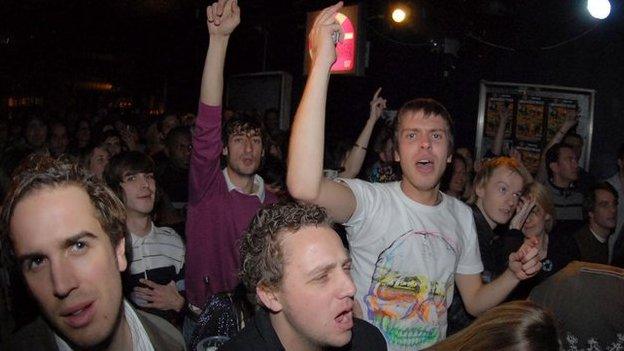Fine Brothers spark fury with YouTube trademark attempt
- Published
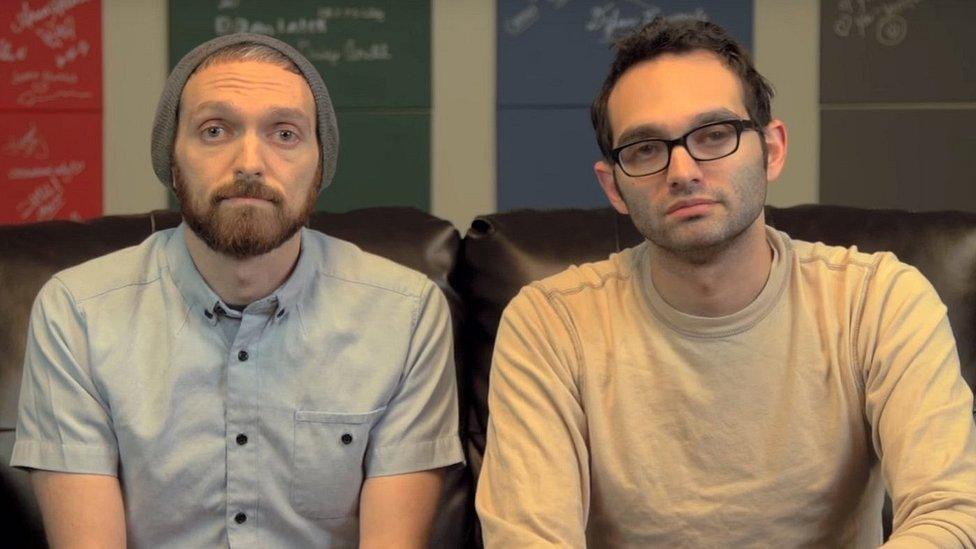
The Fine Brothers had more than 14 million followers before their announcement
The creators of one of YouTube's biggest channels have sparked fury over plans to trademark and license a popular video format.
The Fine Brothers produce a popular series of "reaction videos", in which people watch online clips and respond.
On Tuesday, they revealed a scheme to let other video-makers use assets from their version of the format.
But they have faced a backlash from viewers for trademarking "react" - a term widely used by other creators.
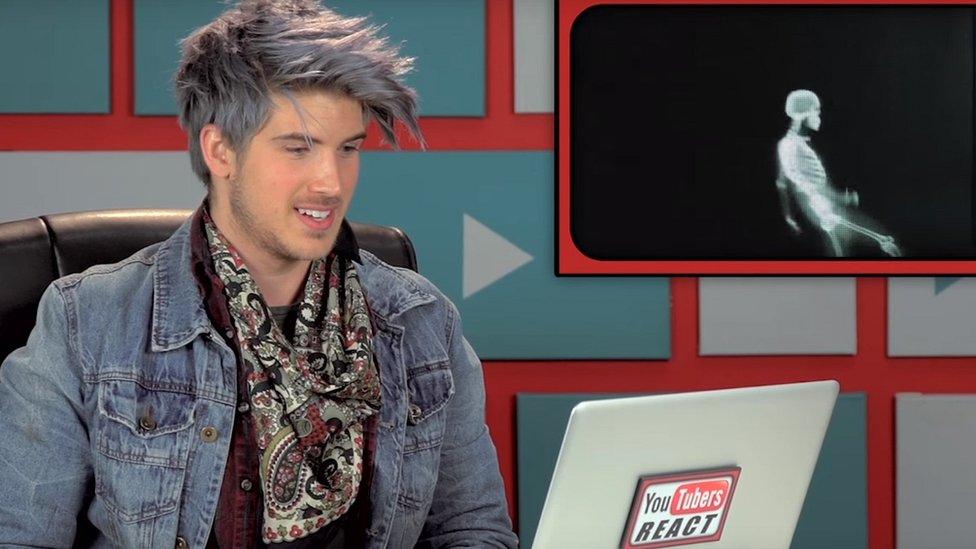
YouTubers React is one of the Fine Brothers' successful series
Typically, reaction videos feature a group of people, for example children or YouTube personalities, looking at an object or video and talking about it.
The format is hugely popular on YouTube, and countless content creators, including US chat show host Ellen DeGeneres, external, have produced videos in this style.
Reaction videos have proved particularly successful for the Fine Brothers, who produce a number of regular series, including Kids React, Teens React and YouTubers React.
In 2015, the brothers applied to trademark terms, including "Kids React", "Adults React" and "Celebrities React", as well as the word "react" itself, which could be used to form new variations of the format.
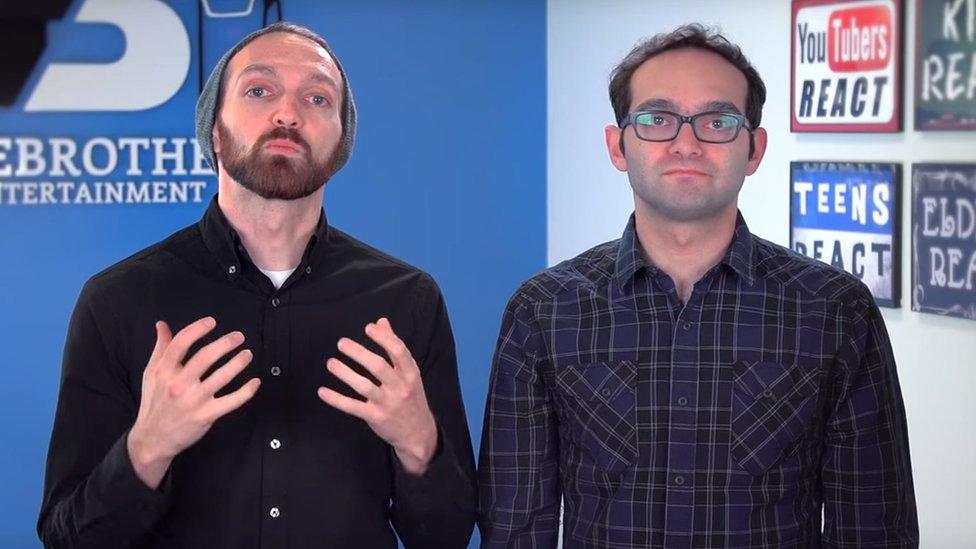
Rafi and Benny Fine are known online as the Fine Brothers
On Tuesday, the brothers announced a licensing scheme called React World, which they said would let other video-makers use the "react" title and assets such as their graphics and music.
But the plan was negatively received by the YouTube community because so many people already make similar reaction-based videos online, using the word "react" in the title.
"They had a bunch of trademarks already and nobody minded," said Jon, a YouTuber from Many A True Nerd, external.
"But the moment they got to just the word 'react', it was just too commonly used.
"People aren't sure whether they will fall foul of the trademark.
"As creators, we have sympathy that you want to protect your content from being stolen - but in this case it's too far," he told the BBC.
The Fine Brothers have insisted they are planning to license only a complete package of "structural elements" and assets - in the same way any television company can produce a singing talent show, but a complete format such as the X Factor is protected.

What are trademarks?
A trademark is the distinctive name or symbol used to identify a product made by a manufacturer or distributed by a dealer.
Trademark law is generally concerned with avoiding consumer confusion regarding the origin or manufacturer of a product.
When a trademark is registered, it is usually limited to a specific field or category. For example, the Fine Brothers registered "react" for use in entertainment videos.
A different company could trademark the same word or phrase in a different category, as long as it is unlikely to cause customer confusion.

However, critics of the Fine Brothers have expressed concern they may use the trademarks to stifle competition.
"People don't trust them because a few years ago when Ellen DeGeneres did a similar video - not that similar, it didn't have the same format or branding - they claimed it was their format," said Jon.
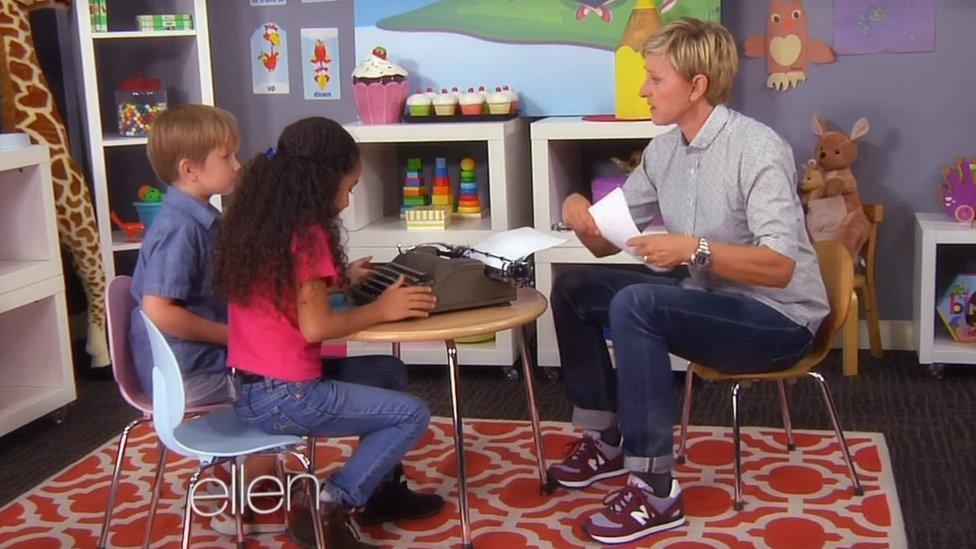
In 2014, the Fine Brothers criticised chat show host Ellen for producing what could be described as a reaction video
A number of people have alleged the Fine Brothers have already had other video-makers' content removed from the internet.
One critic on Reddit, external said: "They've used their leverage with YouTube to take down channels that were making kids-react videos and seniors-react videos."
Addressing the issue, Benny Fine said, external: "When you create series and products, sometimes there's specific situations where your content is being infringed... in very rare cases somebody produces a beat-by-beat version of your exact series, which has happened to us."
Asked on Facebook whether people would be prevented from making a video called, for example, "Kids react to Red Bull", the Fine Brothers replied: "That is a trademarked show name, so yes, that is correct."
But clarifying their licensing plan, external, on Facebook, the Fine Brothers posted: "We are in no way claiming reaction content in general is our intellectual property.
"We are not going after/shutting down/suing anyone who makes reaction-based content," they wrote.
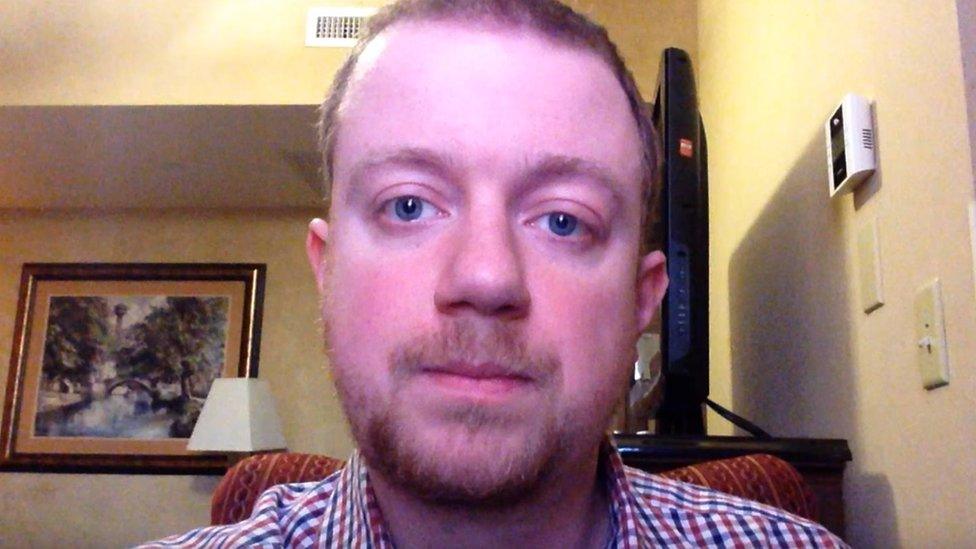
Mr Morrison has offered to help fight the trademark registration
Ryan Morrison, a video gamer turned lawyer, has expressed his disapproval, external of the Fine Brothers' scheme.
He posted on his website: "If you make reaction videos, which a lot of YouTubers do, you are potentially in a lot of trouble."
He has now offered to help video-makers fight the Fine Brothers' trademark application.
"The public has 30 days to file an opposition," he said.
"Had the Fine Bros kept quiet for another month, they almost certainly would have gotten this trademark, as no-one seemed to notice it.
"Instead, they announced their ridiculous licensing program and turned all eyes on them."
Perfect storm
Since their announcement on Tuesday, the Fine Brothers have lost more than 170,000 followers from their YouTube channel.
"I can't remember a channel that lost so many subscribers this quickly. At one point they were losing 10,000 an hour," said Jon.
"The Fine Brothers have become the convenient face of many people's frustrations.
"A lot of people don't like how YouTube's content takedown system works and that it treats you as guilty until proven innocent.
"That has helped this become the perfect storm of anger."
The BBC has approached the Fine Brothers for comment.
- Published14 January 2016
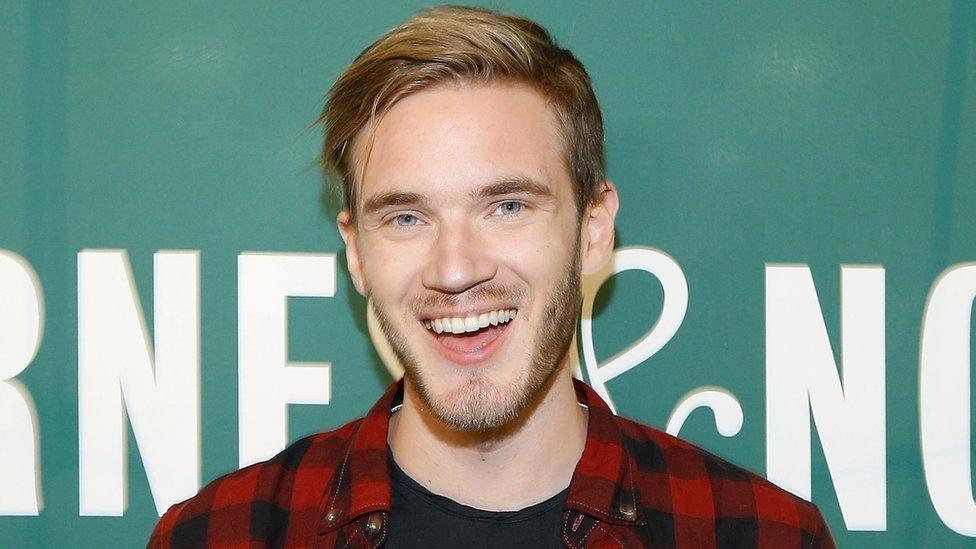
- Published27 January 2016
